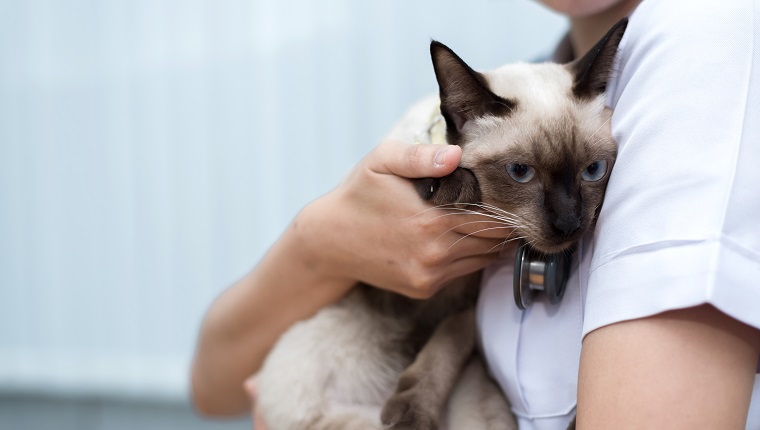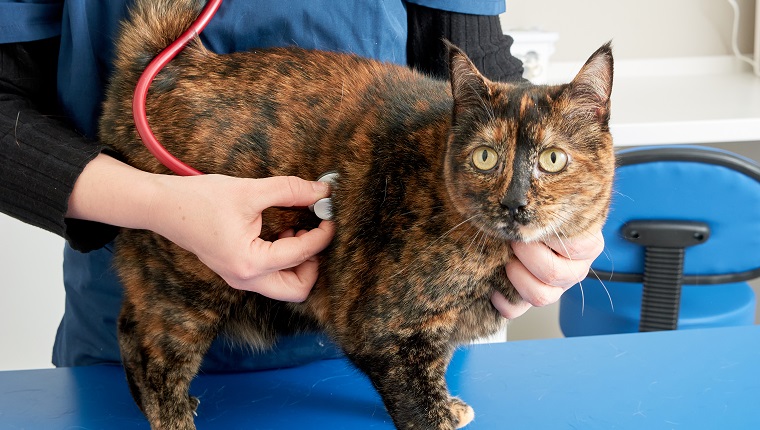Lymphomatoid granulomatosis in cats a rare medical condition that concerns cancerous lymphoid cells making their way into the lungs. The cancer may, in turn, metastasize, or spread and further affect other areas of the body, including the kidneys, heart, spleen, and pancreas.
Although this condition does not affect cats based on their sex or specific breed, it does affect larger cats and purebred cats the most.
If you see signs that your kitty might be developing cancerous growths, then you must consult your veterinarian for a proper diagnosis and course of treatment. Here’s what you should know about the symptoms, causes, and treatments of lymphomatoid granulomatosis in cats.
Symptoms Of Lymphomatoid Granulomatosis In Cats
Lymphomatoid granulomatosis in cats is a condition that produces symptoms that mainly affect the respiratory system. These symptoms generally worsen over time as the condition progresses.
Some of the most common symptoms include:
- Breathing difficulties
- Coughing
- Loss of appetite
- Unwillingness to exercise
- Weight loss
- Developing a fever
Causes Of Lymphomatoid Granulomatosis In Cats

Unfortunately, lymphomatoid granulomatosis in cats is considered to be idiopathic, which means that there is no currently known cause.
However, it seems that purebred cats and larger feline breeds have a higher risk of developing the condition than other kitties.
Veterinary Treatments
If you worry that your cat might be developing lymphomatoid granulomatosis, then your veterinarian will want to carry out a full physical examination. This will involve blood and urine tests as well as X-rays to analyze your cat’s lungs.
In many cases, vets also recommend a biopsy of the lung tissue to confirm a diagnosis.
At the time of writing, there is no known treatment for this condition. However, vets may suggest a course of chemotherapy in some cases. Other times, they may also consider a surgical excision of any affected tissue.
When managing the condition at home, it is vital that your cat keeps up regular appointments with their vet so that the vet can properly and safely monitor your cat’s health.
Has your cat developed lymphomatoid granulomatosis? What types of treatment has your vet recommended? Tell us all about it in the comments below.









